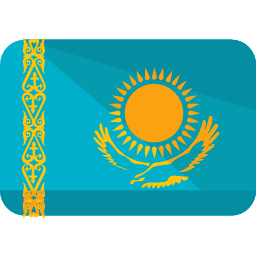Country Services
-
United States
-
United Kingdom
-
Canada
-
South Africa
-
Philippines
-
South Korea
-
Spain
-
Armenia
-
Germany
-
Indonesia
-
Ireland
-
Netherlands
-
Zimbabwe
-
Ghana
888-4004-234
Wechat Id
Simbaking2022
Legal documents play a vital role in various aspects of life, from business transactions to personal matters. In Germany, notary and apostille services ensure the authenticity and validity of such documents. Whether you need to authenticate a contract, verify educational certificates, or facilitate international transactions, understanding the role of notary services and apostille certification is crucial. So Notaryappostille is the best platform that provides Notary and Apostille services at a responsible price in Germany.
Notaryappostille Services in Germany
In Germany, document verification is an important process for various purposes, including identification, immigration, employment, and legal transactions. Notaryappostille provide several types of document verification Services used in Germany.
Personal Identification Documents:
- National Identity Card (Personalausweis): This is an official identification document issued by the German government to its citizens.
- Passport (Reisepass): A passport is an internationally recognized travel document that can also serve as identification.
Residence Permits:
- Aufenthaltstitel: This is a residence permit issued to foreign nationals who are residing in Germany for an extended period, such as for work, study, or family reunification.
Proof of Address:
- Meldebescheinigung: It is a registration certificate issued by the local registration office (Einwohnermeldeamt) confirming a person’s address in Germany.
Work Documents:
- Arbeitsgenehmigung: This refers to a work permit issued to foreign nationals who are authorized to work in Germany.
- Sozialversicherungsausweis: This is a social security card that verifies an individual’s registration with the social security system.
Educational Certificates:
- Abiturzeugnis: It is a certificate issued upon completion of the Abitur, the final examination in the German education system.
- Hochschulzeugnis: This refers to higher education certificates, such as Bachelor’s or Master’s degrees, issued by German universities.
Financial Documents:
- Steueridentifikationsnummer: It is a tax identification number assigned to individuals for tax-related purposes.
- Gehaltsabrechnung: This refers to payslips or salary statements that verify an individual’s income.
Legal Documents:
- Geburtsurkunde: A birth certificate that provides proof of birth and personal details.
- Heiratsurkunde: A marriage certificate issued to married couples.
- Scheidungsurteil: This is a divorce decree issued by a court.
Benefits of using Notaryappostille services
Legal Validity and Recognition
Notaryappostille services ensure that legal documents are properly drafted, authenticated, and executed according to the relevant laws and regulations in Germany. Notarized documents carry greater weight and are more likely to be recognized and accepted by courts, government authorities, and other parties involved in legal transactions.
International Acceptance
Apostille certification is particularly valuable when dealing with international transactions and documents. By obtaining an apostille, a document issued in Germany can be easily recognized and accepted in other countries that are signatories to the Hague Convention. This simplifies the process of using German documents abroad, whether for business, education, or personal matters.
Increased Credibility and Trust
Notarized and apostille-certified documents carry a higher level of credibility and trust. They provide assurance to parties involved in legal transactions, such as buyers, sellers, lenders, and investors, that the documents are legally binding and authentic. This enhances confidence and reduces the risk of misunderstandings or disputes.
Access to Legal Expertise
Notaries in Germany are trained legal professionals who can provide valuable advice, guidance, and assistance in understanding and navigating the legal requirements and implications of various transactions. Their expertise helps individuals and businesses make informed decisions and ensures compliance with the applicable laws and regulations.
International Acceptance and Recognition
The Hague Apostille Convention, of which the Netherlands is a signatory, facilitates the recognition of Dutch documents in participating countries. By obtaining an Apostille, documents such as birth certificates, marriage certificates, and academic degrees gain international acceptance, simplifying processes related to immigration, education, employment, and legal matters abroad.
Efficient and Streamlined Processes
Notaries and Apostille services help streamline administrative procedures. By providing standardized formats, authentication mechanisms, and legal oversight, they reduce bureaucratic hurdles and save individuals and businesses time and effort when dealing with legal documentation and cross-border transactions.
Compliance with International Standards
Germany’s participation in the Hague Convention and provision of apostille services aligns with international standards for document authentication. This harmonization of procedures facilitates international cooperation, trade, and the exchange of educational qualifications, promoting a globalized and interconnected world.
Process for verification of documents
When it comes to verifying the authenticity of legal documents, the process can vary depending on the type of document and the intended use. Certainly! The three main processes for document verification: Notary, Postal, and Legalization
Notary
: Notarization is a process performed by a notary public, an authorized official who verifies the authenticity of documents and ensures their legal validity. The notary public confirms the identity of the signatories and witnesses by checking their identification documents, such as a driver’s license or passport. Notarization is commonly required for various legal documents, such as affidavits, powers of attorney, contracts, and real estate transactions. The notary’s signature and seal serve as evidence that the document is authentic and the parties involved have willingly entered into the agreement.
Postal
The postal verification process typically involves sending documents through postal mail for verification purposes. This method is commonly used when original documents need to be verified or certified copies are required. The individual or organization sending the documents will send them to the intended recipient via registered or certified mail.
Upon receiving the documents, the recipient will review and verify their authenticity. This may involve comparing the documents with existing records or conducting additional checks.
Legalization
Legalization is a process that validates the authenticity of documents for international use. It is often required when documents issued in one country need to be recognized and accepted by another country.
Conclusion
Notary and apostille services in Germany play a crucial role in verifying the authenticity and legality of legal documents. Notaryappostille service ensure the accuracy and validity of various transactions, while apostille certification simplifies the recognition of German public documents abroad. Whether it’s notarizing contracts, authenticating educational certificates, or facilitating international transactions, these services provide confidence and legal certainty. Understanding the importance of notary and apostille services is essential for individuals and businesses navigating the complex world of legal documentation in Germany.
FAQ’s
Q: What is the difference between a notary and an apostille?
A: A notary is a legal professional who verifies the authenticity and validity of legal documents, ensuring compliance with the relevant laws and regulations. They often witness the signing of documents, administer oaths, and provide legal advice. An apostille, on the other hand, is a certification attached to a public document to verify its authenticity for use in countries that are signatories to the Hague Convention. It simplifies the recognition of the document in foreign jurisdictions.
Q: When do I need to use notary services in Germany?
A: Notary services are typically required for various legal transactions in Germany. Some common instances include the notarization of real estate contracts, wills, powers of attorney, marriage contracts, and certain business agreements. Notaries ensure that these documents are legally valid and binding.
Q: Which documents require apostille certification?
A: Apostille certification is generally required for public documents issued in Germany that need to be used in other countries that are signatories to the Hague Convention. This includes documents such as birth, marriage, and death certificates, educational degrees and transcripts, business agreements, and other official records.
Q: How do I obtain an apostille for my German document?
A: To obtain an apostille for a German document, you typically need to contact Notaryappostille




























